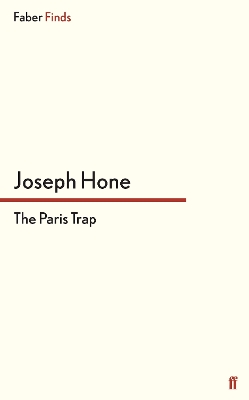Coronet Books
3 total works
Joseph Hone's The Paris Trap, first published in 1977, saw him step aside from his sequence of 'Peter Marlow' novels to offer a different kind of political thriller.
Jim Hackett and Harry Tyson first met in Paris, in days of hope - Hackett a promising actor, Tyson a budding writer. Twenty years later, their dreams soured, they are reunited in Paris for a substantive project: Hackett, now a movie actor, has been cast in a major film derived from a spy novel authored by Tyson, who now works for British intelligence. But the plot of the film, concerning a Palestinian terrorist cell, is about to be overtaken in the dramatic stakes by real events.
'A fine example of a vastly popular genre - the thinking man's thriller.' Irish Times
'Through a distorting filter of betrayals, private and public, Joseph Hone conducts us to a final scene so dire that Hamlet by comparison leaves the stage tidy.' Guardian


